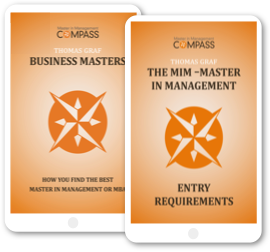You are interested in corporate finance, accounting, private equity or risk management? Your goal is to become a finance guru and analyze numbers with a strategic impact for your employer? Then a Master in Finance (MSc) may be the right choice for you.
Master in Finance Programs: Exposure to the real World
Besides the coursework, many schools offer practical appliance or even abroad studying and internships. Schools may bring their students in contact with practitioners who are often prestigious and successful in their chosen areas and supposed to impart into the students a strong understanding for these fields of study.
Choosing the School for its Network
Some experts are also known to hold online courses, during their teaching at a university, thus showing a greater flexibility towards their students’ requirements while also complying with the university programs. Choosing a school based on its network with firms and financial experts in the real world of corporate finance may be a good advice as these networks may provide the path to a career after graduation.
Program Characteristics: Internationality
Aspirants whose first language is not English have to give proof of their language skills, like the TOEFL (Test of English as a Foreign Language) exam or IELTS (International English Language Testing System) test scores. Most Master of Finance programs are in English, though there are some European programs which are held in the language of the respective country. It is still a usual concept that a program which is held in the countries’ language also requires some parts in the English language. This is to prepare students for an international career, where English is still the most common and usual language. International students are also encouraged to take part in the programs, since their language skills can still be enough for participating in a mixed language program.
Difference between an M.Fin. and General Management Programs
In comparison with an MBA (Master of Business Administration) program or a Master of Management, Masters of Finance (MSc) and specialized management Masters and have their main focus on educational depth and width in finance. General management topics are more limited than with an MBA. Briefly speaking: MBA and Master in Management programs (MIM) are general management programs that cover a wide range of functional disciplines. Master of Finance programs in contrast focus and build expertise in a core discipline. Some universities also offer a degree with “dual major”, combining MBA and Master of Science in Finance, thus giving the opportunity to focus more on the finance part of the program. Those combined programs can – depending on the university or school – result in longer studies, rather taking up the time of two years.
Becoming a Chartered Financial Analyst (CFA)?
Some schools also offer the opportunity to extend the Master of Finance to become a Chartered Financial Analyst (CFA). The University of Melbourne, for instance, has a partnership with the CFA Institute, the global association for investment professionals that awards the CFA® designation. By including about 70% of the CFA knowledge in the Master of Finance curriculum and by offering sample exams, the Master of Finance directly prepares for the CFA exams.
Some interesting Links about Prostgraduate Programs in Finance
By Thomas Graf









